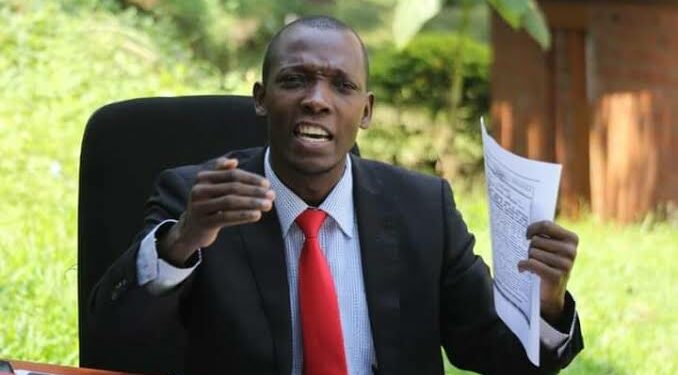The Shadow Minister for Foreign Affairs, Hon. Muwada Nkunyingi, has called on the Ugandan government to intervene and assist nationals stranded in the United Arab Emirates (UAE) and Saudi Arabia as the amnesty period approaches its deadline.
Hon. Nkunyingi, who also serves as the Member of Parliament for Kyadondo East, expressed concern during an interview with NBS TV, stating that many Ugandans, who were given until December 31st to return to Uganda, have not been able to secure tickets or meet other requirements.
In November, the State Minister for Labor, Hon. Esther Anyakun, announced an extension of the amnesty for Ugandans in the UAE, offering them a two-month window to return home.
However, with the deadline fast approaching, many Ugandans remain trapped due to various hurdles. Some are struggling to obtain passports, while others are unable to raise enough funds for return tickets.
According to Hon. Nkunyingi, the situation has been worsened by issues at the Ugandan embassy, which reportedly stopped issuing passports during the amnesty period. He explained that many Ugandans who had paid for their passports were left in limbo, with no way to finalize their return.
“They were given two months in November and December, but the Ugandan embassy stopped issuing passports. You will see Ugandans with receipts, complaining that they even paid for their passports, but the embassy said they were not permitted to continue the issuance,” Hon. Nkunyingi explained. He noted that this has left many Ugandans in the UAE without the necessary documentation to take advantage of the amnesty.
The amnesty, which was in place from September to December, was designed to help Ugandans in the UAE and Saudi Arabia return home. However, it excluded other countries such as Qatar, Jordan, and Egypt, where there have also been reports of Ugandans facing challenges, including detention. Hon. Nkunyingi urged the government to engage with these countries to negotiate similar amnesty provisions for Ugandans stranded there.
“It is important that Uganda engages with other countries like Qatar, Jordan, and Egypt. Some Ugandans are in detention in these countries, and we should work to ensure they too are given an opportunity to return home under similar amnesty provisions,” said Hon. Nkunyingi.
Esther Anyakun, the State Minister for Labor, responded to the concerns by emphasizing that the amnesty had already helped bring back 277 Ugandans. However, she expressed concern that some nationals had not taken the amnesty seriously, and were now blaming the government for failing to meet the deadline.
“There are some people who may have waited too long to act, and now, with the festive season, it’s getting too late,” she said. “We’ve been in discussions with our ambassador to ensure that the process continues until the end of December, but we cannot change the deadline.”
Minister Anyakun also warned Ugandans who might want to take advantage of the amnesty and remain in the UAE or Saudi Arabia that such actions were not be part of the negotiations. She stressed that individuals with criminal records would not be eligible for the amnesty and would face severe consequences if they tried to remain in these countries beyond the deadline.
“There was nothing in the negotiations that allows Ugandans who want to stay in these countries. Those who have criminal records are particularly at risk,” she cautioned.
On his part, former East African Legislative Assembly (EALA) Member of Parliament, Fred Makasa Mbidde, also voiced his criticism of the government’s handling of Ugandans working abroad. Mbidde, who is a strong advocate for the welfare of Ugandan labor migrants, called for a more structured and protective approach to ensure the safety and well-being of Ugandans working overseas.
He emphasized that the government should not only focus on the economic contributions of Ugandans abroad, which contribute over a billion US dollars annually to the Ugandan economy, but also on their rights. Mbidde proposed the creation of special policies to protect Ugandan workers abroad, as well as the establishment of a tribunal system to address issues between employees and employers.
“Uganda should not only target the income generated by Ugandans working abroad, but it must also focus on ensuring the rights of these workers. We need to establish tribunals or pseudo courts to address labor disputes and ensure justice when problems arise between employers and employees,” Mbidde said.
As the amnesty period nears its close, Ugandan nationals in the UAE and Saudi Arabia face an uncertain future. While the government has made efforts to bring back many of its citizens, challenges such as passport issues, lack of funds for travel, and limited time remain significant obstacles.
Do you have a story in your community or an opinion to share with us: Email us at editorial@watchdoguganda.com













